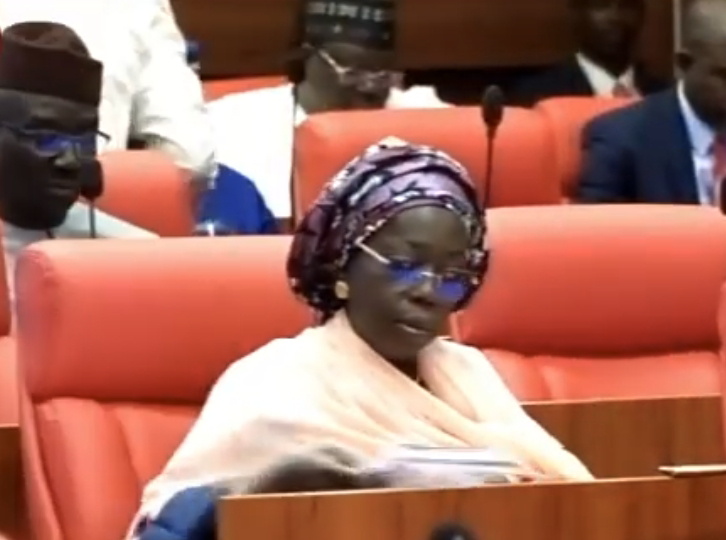The Senate of Nigeria has recently made a significant move in the realm of education by passing the Student Loans Access to Higher Education Act (Repeal and Re-Enactment) Bill for the year 2024. This legislative milestone comes after thorough consideration of a report presented by the Committee on Tertiary Institutions and Tertiary Education Trust Fund (TETFUND), led by Sen. Mohammed Muntari from Katsina South.
President Bola Tinubu's call for the repeal of the existing Student Loan (Access to Higher Education) Bill and the enactment of a new one has spurred this action. The new act aims to improve the implementation of the Higher Education Student Loan Scheme by addressing various challenges faced in managing the Nigerian Education Loan Fund (NELF). These challenges include issues related to applicant eligibility requirements, loan purpose, funding sources, and disbursement and repayment procedures.
The decision to revise the existing legislation follows the temporary suspension of the commencement of the student loan system. Originally designed to provide Nigerian students in tertiary institutions with access to low-interest loans to support their studies, the law was put on hold pending necessary revisions.
In addition to addressing student loan issues, the Senate also engaged in a debate on the pressing issue of out-of-school children in Nigeria. Sponsored by Sen. Adebule Oluranti representing Lagos West, the motion highlighted the urgent need to tackle the alarming number of children who are not enrolled in any formal education system. According to UNESCO statistics, this number is estimated to be as high as 20 million.
During the debate, lawmakers emphasized the importance of holding state governments accountable for their role in addressing the issue of out-of-school children. Sen. Oshiomhole urged the Senate to compel relevant agencies to publish data on the percentage of out-of-school children in each state. This transparency would help identify states that are failing to prioritize education and endangering the welfare of their citizens.
In response to these concerns, the Senate passed resolutions aimed at addressing the out-of-school children crisis. It called for the establishment of mobile courts by the judiciary in all 36 states to enforce the Universal Basic Education (UBE) Act. Additionally, the Senate mandated its Committee on Education to collaborate with the Ministry of Education to develop strategies to reduce the number of out-of-school children within a two-year timeframe.
By passing the Student Loans Access to Higher Education Act and taking decisive action on the issue of out-of-school children, the Senate has demonstrated its commitment to promoting access to education and ensuring that every child has the opportunity to receive quality schooling. This legislative initiative represents a step forward in Nigeria's efforts to build a more inclusive and equitable education system for all its citizens.
President Bola Tinubu's call for the repeal of the existing Student Loan (Access to Higher Education) Bill and the enactment of a new one has spurred this action. The new act aims to improve the implementation of the Higher Education Student Loan Scheme by addressing various challenges faced in managing the Nigerian Education Loan Fund (NELF). These challenges include issues related to applicant eligibility requirements, loan purpose, funding sources, and disbursement and repayment procedures.
The decision to revise the existing legislation follows the temporary suspension of the commencement of the student loan system. Originally designed to provide Nigerian students in tertiary institutions with access to low-interest loans to support their studies, the law was put on hold pending necessary revisions.
In addition to addressing student loan issues, the Senate also engaged in a debate on the pressing issue of out-of-school children in Nigeria. Sponsored by Sen. Adebule Oluranti representing Lagos West, the motion highlighted the urgent need to tackle the alarming number of children who are not enrolled in any formal education system. According to UNESCO statistics, this number is estimated to be as high as 20 million.
During the debate, lawmakers emphasized the importance of holding state governments accountable for their role in addressing the issue of out-of-school children. Sen. Oshiomhole urged the Senate to compel relevant agencies to publish data on the percentage of out-of-school children in each state. This transparency would help identify states that are failing to prioritize education and endangering the welfare of their citizens.
In response to these concerns, the Senate passed resolutions aimed at addressing the out-of-school children crisis. It called for the establishment of mobile courts by the judiciary in all 36 states to enforce the Universal Basic Education (UBE) Act. Additionally, the Senate mandated its Committee on Education to collaborate with the Ministry of Education to develop strategies to reduce the number of out-of-school children within a two-year timeframe.
By passing the Student Loans Access to Higher Education Act and taking decisive action on the issue of out-of-school children, the Senate has demonstrated its commitment to promoting access to education and ensuring that every child has the opportunity to receive quality schooling. This legislative initiative represents a step forward in Nigeria's efforts to build a more inclusive and equitable education system for all its citizens.
Tags
Nigerian News

